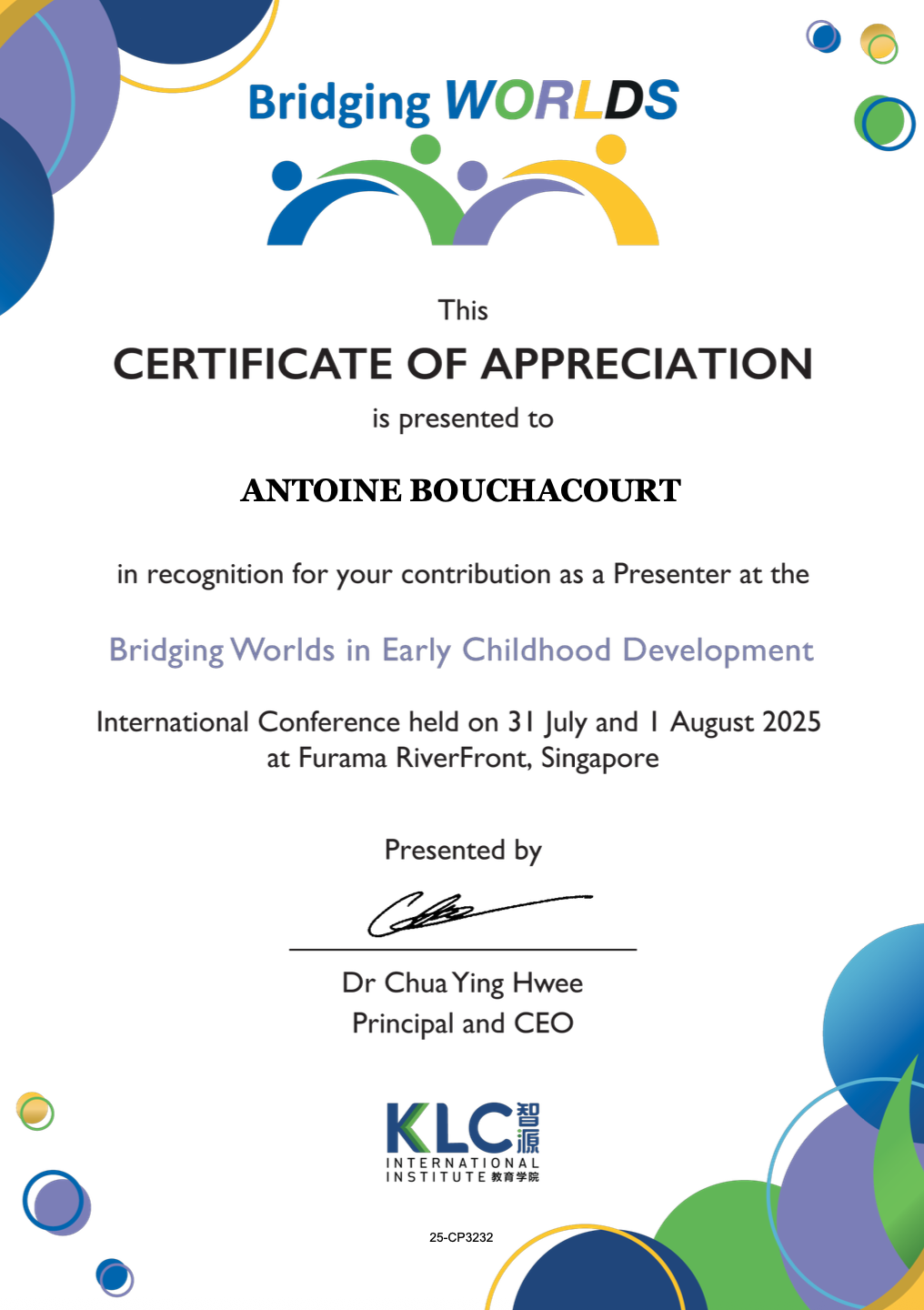Play with Purpose: How Inclusive Multi-Sport Environments Support Holistic Child Development
For parents searching for the best ways to support their child’s growth, early years sport offers more than just physical fitness. Purposeful, inclusive multi-sport programmes are powerful tools for building not only coordination and strength, but also focus, resilience, empathy, and self-confidence.
For parents searching for the best ways to support their child’s growth, early years sport offers more than just physical fitness. Purposeful, inclusive multi-sport programmes are powerful tools for building not only coordination and strength, but also focus, resilience, empathy, and self-confidence.
In Singapore and around the world, families are discovering that sports for young children can play a vital role in holistic child development, helping to prepare little ones for school, friendships, and life’s challenges.
Executive Function: Strengthening Focus, Problem-Solving, and Self-Control
One of the main benefits of sports for young children is the boost to executive function — the brain’s “control centre” for focus, planning, and self-regulation.
Movement-based activities such as obstacle courses, relay games, or strategy-based tag require children to remember rules (working memory), adapt when the game changes (cognitive flexibility), and think before acting (inhibitory control).
Research highlights:
- Diamond & Lee (2011) found that structured physical play helps children switch tasks effectively, follow multi-step directions, and resist distractions, all skills linked to later academic success.
- Best (2010) reported that children involved in a variety of sports and activities showed significant improvement in impulse control, flexible thinking, and problem-solving.
By introducing multi-sport activities for preschoolers, we give children opportunities to adapt to new challenges, a skill that helps them both in the classroom and in daily life.
Social-Emotional Learning: How Sports Build Empathy, Teamwork, and Communication
Organised sports also play a vital role in developing social skills in early childhood. Team games, cooperative challenges, and inclusive sports activities allow children to practice sharing, taking turns, listening, and problem-solving with peers.
When programmes are inclusive, welcoming children of all abilities and backgrounds, they encourage empathy and help kids see diversity as a strength.
Research highlights:
- Pellegrini & Smith (1998) showed that early, structured physical play strengthens social competence, helping children form friendships and resolve conflicts.
- Weiss et al. (2016) found that mixed-ability settings reduce stigma, foster understanding, and build prosocial behaviours such as helping and encouraging others.
For parents seeking inclusive sports for kids in Singapore, these elements can be just as valuable as physical skill-building — if not more so.
Self-Confidence: Why Small Achievements in Sport Have a Big Impact
Developing self-confidence in children through sport starts with small wins. For a preschooler, successes like landing a beanbag in a hoop, dribbling a ball, or balancing for a few seconds can spark long-term belief in their abilities.
Research highlights:
- Bandura (1997) found that mastery experiences, succeeding through persistent effort, are a key foundation of lasting self-belief.
- Babic et al. (2014) confirmed that focusing on effort and progress, rather than only outcome, helps children develop a growth mindset - the resilience to try again even when things are hard.
When coaches and parents celebrate effort, children learn that improvement matters more than perfection, which reinforces motivation and perseverance.
Why Multi-Sport Programmes Prepare Children for Lifelong Learning
Rotating between different sports exposes children to a variety of movement patterns, strategies, and problem-solving scenarios. This diversity not only enhances physical literacy (balance, coordination, agility) but also prevents burnout and reduces the risk of overuse injuries common in sports specialisation.
Moreover, inclusive, multi-sport environments reflect real-world team dynamics -working with different people under changing circumstances - helping children become adaptable, resilient, and confident in social settings.
Parents looking to maximise the early childhood physical activity benefits should consider options that combine variety, inclusion, and play-based learning.
Case in Point: Minisport Singapore’s Play-Based, Inclusive Model
An example of these principles in action is the programmes we run in Singapore, which offer a rotating six-sport programme for children aged 1.5 to 6, including soccer, basketball, tennis, rugby, athletics, and hockey.
Sessions are small-group and theme-based, blending skill-building with creative play. Coaches receive specialised training in inclusion, emotional safety, and adaptability, ensuring that each child, regardless of ability or starting point, can thrive.
Regular feedback from families helps refine the approach, keeping it responsive to the needs of young learners.
It’s more than play. It’s preparation for life.
Interested in giving your child the benefits of inclusive, multi-sport play?
Discover how purposeful physical activity can support your child’s holistic development.
Book a trial session to see how we nurture young minds and bodies through fun, inclusive sports.
Note:
A visual version of this article was showcased at the KLC Early Childhood Conference in Singapore in August 2025, where educators discussed how inclusive, purposeful play activities for toddlers and preschoolers can shape the cognitive, emotional, and social development of young children.

Latest posts
Think your toddler hates vegetables because of the taste? Think again. For children aged 1.5 to 6, texture, temperature, and presentation are often the real barriers — and they're all within your control. Discover 8 evidence-informed preparation methods that increase vegetable acceptance without pressure, tricks, or mealtime meltdowns.
Social exclusion in early childhood begins earlier than most parents expect — sometimes as young as 13 months. Learn how to recognize the signs of peer rejection at every age from toddler to preschool, and what you can do to help your child build the social skills and confidence they need to belong.

